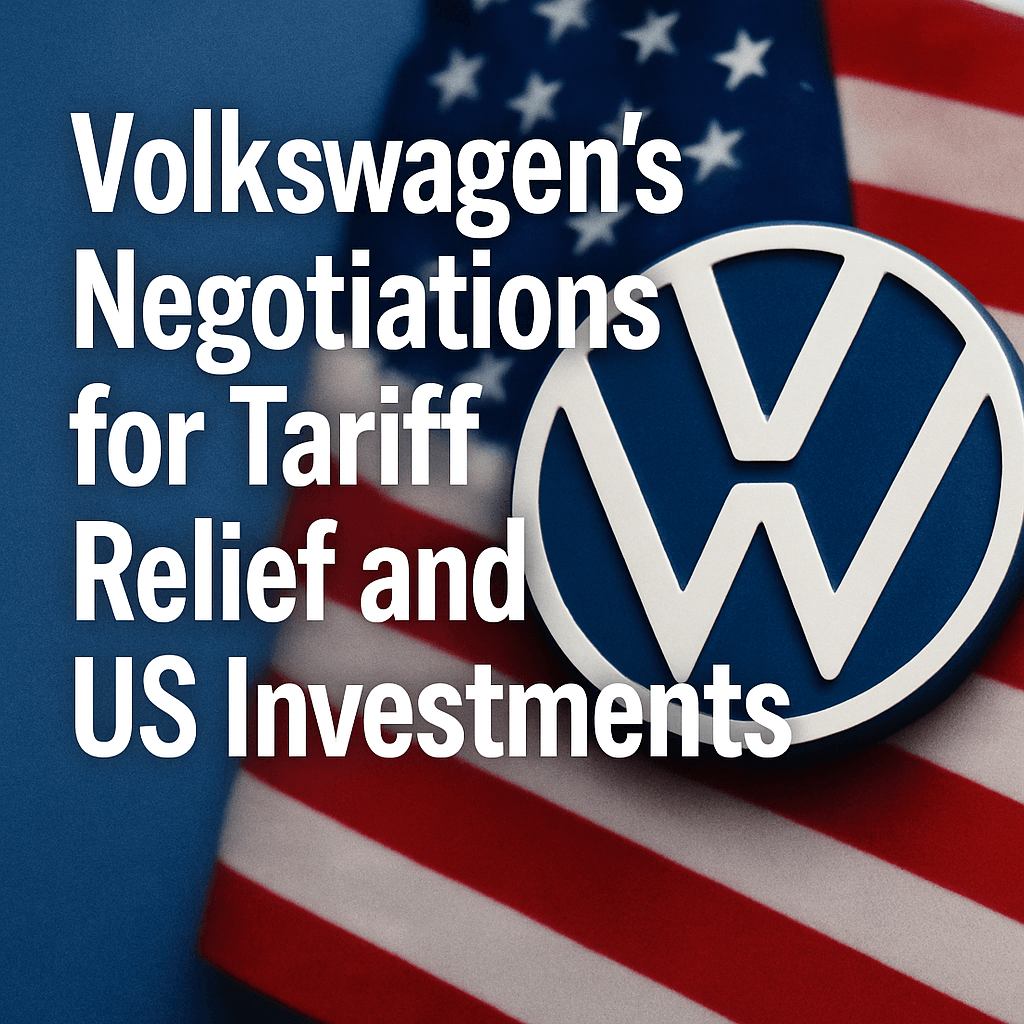Volkswagen’s Negotiations for Tariff Relief and US Investments

Oliver Blume, the Chief Executive Officer (CEO) of Volkswagen AG, has disclosed in a recent interview with the Süddeutsche Zeitung that the automotive giant is actively engaged in negotiations with the US government regarding potential tariff relief. This move is particularly significant given the backdrop of the ongoing geopolitical and economic discussions influencing the auto industry.
Current Negotiations with the US Government
Blume noted that the primary contact for these discussions is the US Secretary of Commerce, Howard Lutnick. Interestingly, he mentioned that these negotiations have not only reached the Secretary’s desk but have also been acknowledged by President Donald Trump. The implications of these negotiations could be substantial, as favorable tariff outcomes could significantly impact Volkswagen’s financial and operational strategy in the United States.
Volkswagen’s Commitment to US Operations
Volkswagen has established a strong presence in the United States, employing over 20,000 direct employees and approximately 55,000 indirect employees. The company operates its Chattanooga Assembly Plant in Tennessee, where it produces a range of vehicles, including popular models such as the Atlas, the Passat, and the Atlas Cross Sport. This facility is also tasked with assembling the Volkswagen ID.4, the company’s flagship all-electric SUV, highlighting Volkswagen’s commitment to both traditional and electric vehicle markets.
Strategic Impact of Tariff Agreements
The negotiations for tariff relief are particularly pertinent in light of the automotive industry’s shifting dynamics and the increasing emphasis on electric vehicles (EVs). Blume argues that any firm investing in the economy of a host country should receive advantageous terms, acting as an incentive for further investment. As the automotive sector transitions towards electrification, securing favorable tariffs could potentially reduce production costs and improve competitiveness in the growing EV market.
Partnership with Rivian
An essential part of Volkswagen’s strategy involves its collaboration with Rivian, a prominent US electric vehicle manufacturer. This partnership aims to leverage Volkswagen’s Modular Electric Drive Matrix (MEB) platform alongside Rivian’s innovative battery design and software capabilities. By combining their strengths, both companies aim to accelerate the development of next-generation electric vehicle architectures, which could prove vital as consumer demand for electric vehicles continues to rise.
Broader Industry Implications
In related news, German outlets like Handelsblatt have indicated that other major automotive players, including Mercedes-Benz and BMW, are also exploring potential agreements with the US government. Such developments underscore a broader trend within the automotive industry focusing on adapting to new market realities amidst changing regulatory environments.
Economic Context: Challenges in the Manufacturing Sector
As Volkswagen navigates these negotiations, Germany faces challenges in its manufacturing sector, with rising unemployment indicating broader economic weaknesses. The outcomes of trade negotiations and tariff agreements could play a crucial role in stabilizing the sector and fostering growth, particularly in the context of the ongoing global shift toward sustainability.
The Road Ahead: Preparing for COP30 in Brazil
Looking forward, Volkswagen’s strategies will not only shape its future in the US market but may also influence its commitments to global sustainability and climate targets. As the automotive industry commits to reducing carbon footprints, these negotiations may also align with upcoming discussions at COP30 in Brazil, where climate finance and accountability will be hot topics.
Conclusion
Overall, the negotiations between Volkswagen and the US government present a pivotal moment for the automotive sector, reflecting the interplay between international trade, economic policy, and sustainability commitments. As these discussions continue, stakeholders will be watching closely to see how they unfold and what implications they carry for the future of the automotive industry globally.